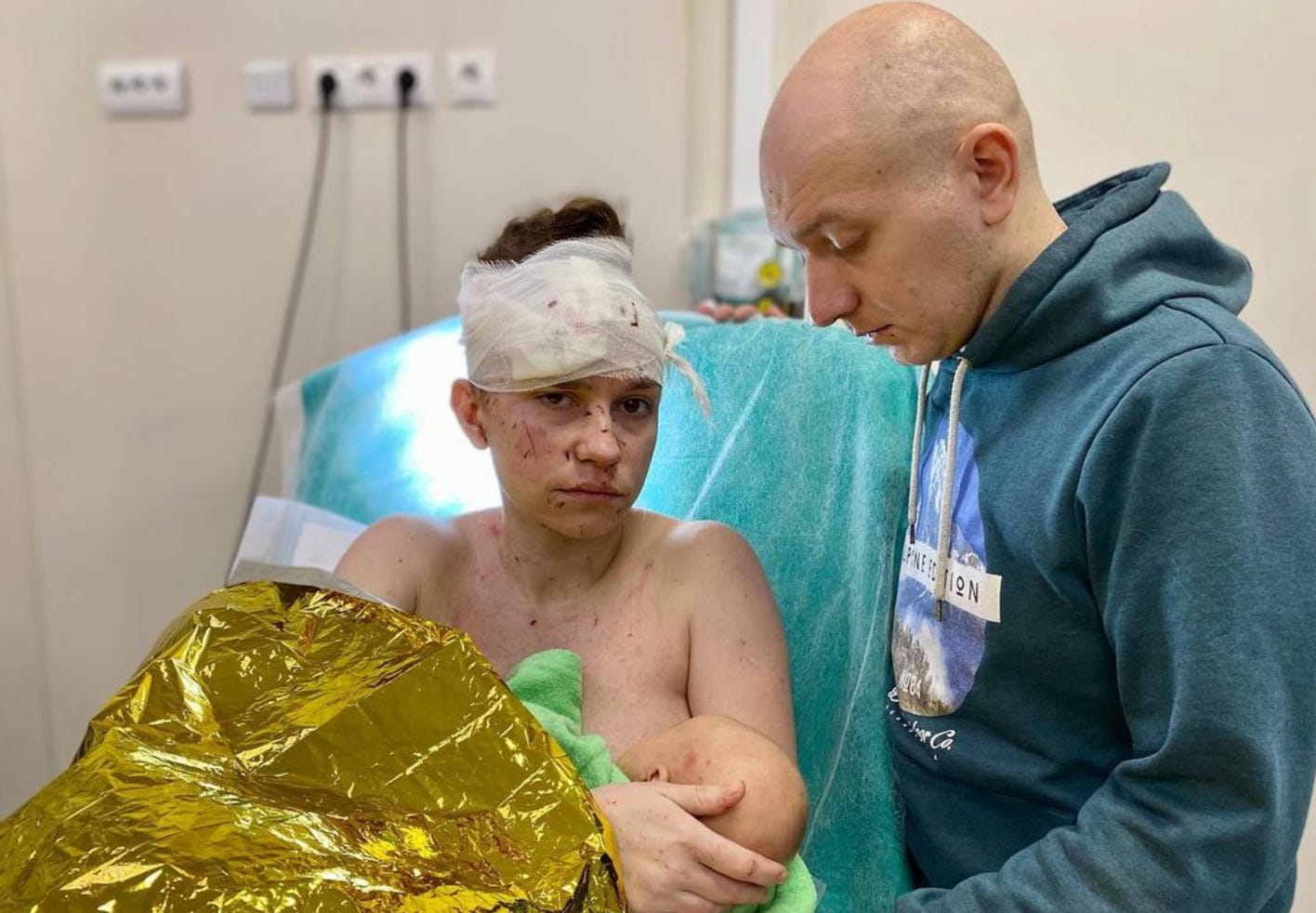Is There a Double Standard on Ukraine?
Sure. But it's better to inconsistently do the right thing than to consistently remain indifferent.
I’ve had readers ask me, a bit hesitantly, if the outrage at Russia’s brutality in Ukraine doesn’t reflect a double standard. Where was the similar outrage, they ask, at suffering in Yemen, Syria or elsewhere?
It’s a fair question, but I think the answer is complicated. Yes, there’s a double standard, but it’s too glib to suggest that Ukraine gets more help and attention only because the crisis affects white Europeans. That’s surely a part of it, but Ukraine also risks a much larger war and the first use of nuclear weapons in conflict since Hiroshima and Nagasaki.

Here’s how I see the issue.
In humanitarian terms, there are several conflicts that are arguably “worse” than Ukraine’s (although I flinch at suggesting a hierarchy of humanitarian catastrophe): Yemen, Ethiopia and Myanmar. That’s not even counting the ongoing suffering in Syria and Darfur, where in each place the death toll runs in the hundreds of thousands.
In Yemen, our ally Saudi Arabia has played the role of Russia, using American weapons that we continue to supply. In Ethiopia, the government has mounted what looks like a genocidal war against people of the Tigray region, with a new report underscoring the impact of the campaign of murder, rape and pillage. And in Myanmar, the Biden administration belatedly acknowledged this week that the government’s brutality toward the Rohingya people constituted genocide, but the Myanmar army’s savagery continues.
I’ve reported on all of these conflicts, and it was deeply frustrating that the international community didn’t try harder to end genocide or mass atrocities, nor did we in the media do as much as we could to cover the humanitarian toll. I will never forget Rohingya parents telling me how Myanmar soldiers threw their babies onto bonfires.
It has always been so. The one genocide that did generate a credible response was in Kosovo in 1999, and that was partly because it involved white Europeans as victims. There had been no similar response to the slaughter of 700,000 Black Rwandans five years earlier.
Ukraine attracts global interest and attention today for many reasons. It’s the ancestral home of many of us, including me, and there are many Ukrainians in the West. The victims and perpetrators alike are white and European, and that’s one reason both the U.S. and Europe have been much more willing to host Ukrainian refugees than they were to host Syrian refugees.
But let’s also acknowledge that Ukraine is different and a far more serious threat to the international order. The invader is Russia, a superpower (more or less) that is trying to reconstitute the Soviet Union. If successful in Ukraine, Putin could continue and attack Moldova, Estonia or Poland.

Russia may well use chemical weapons or tactical nuclear weapons in Ukraine, as I wrote in my last essay, and that gives the Ukraine war extra significance. Ethiopia’s brutality in Tigray does not risk a world war; Russia’s in Ukraine does. So for reasons both legitimate and parochial/emotional/provincial, we’re focused on Ukraine in a way that we have not been in Darfur, Syria, Tigray or Yemen.
I hear from some people who seem embarrassed by the focus on Ukraine, because of this perception of a double standard, In fact, I don’t think there’s any reason to be ashamed of our response to Ukrainian suffering. I’m glad the West is providing lethal weapons to Ukraine, for I’ve been arguing that we should do so since the Obama administration. I’m glad European countries are welcoming Ukrainian refugees. I wish we were more concerned with Ethiopian or Yemeni suffering, but that’s not a reason to be indifferent to Ukrainian needs.
My take, in a nutshell: Yes, there’s a double standard, but it is better to inconsistently do the right thing than to consistently turn a cold shoulder to suffering.
Your thoughts?


Nick, your guidance as always is wise and perceptive.
I would like to add our neighbors, Central American families, struggling in the face of gun violence by drug cartels, their suffering enabled by many in the US.
When then President Calderon of Mexico spoke to Congress years ago asking to stop the trafficking of deadly weapons from the US, the Republicans in Congress and on Fox attacked him.
And, of course, many Americans here actually support the deadly drug cartels by sending them financial support in the form of drug purchases.
In the meantime, Republicans push policies that distract our border guards from fighting drugs trafficking, instead demanding we spend resources on blocking the dreams of families who in desperation try to come here to escape the violence enabled by the lack of sufficient attention to guns and drugs at our borders.
I absolutely agree that it is better to inconsistently do the right thing .I just wish we could do the right thing more often.